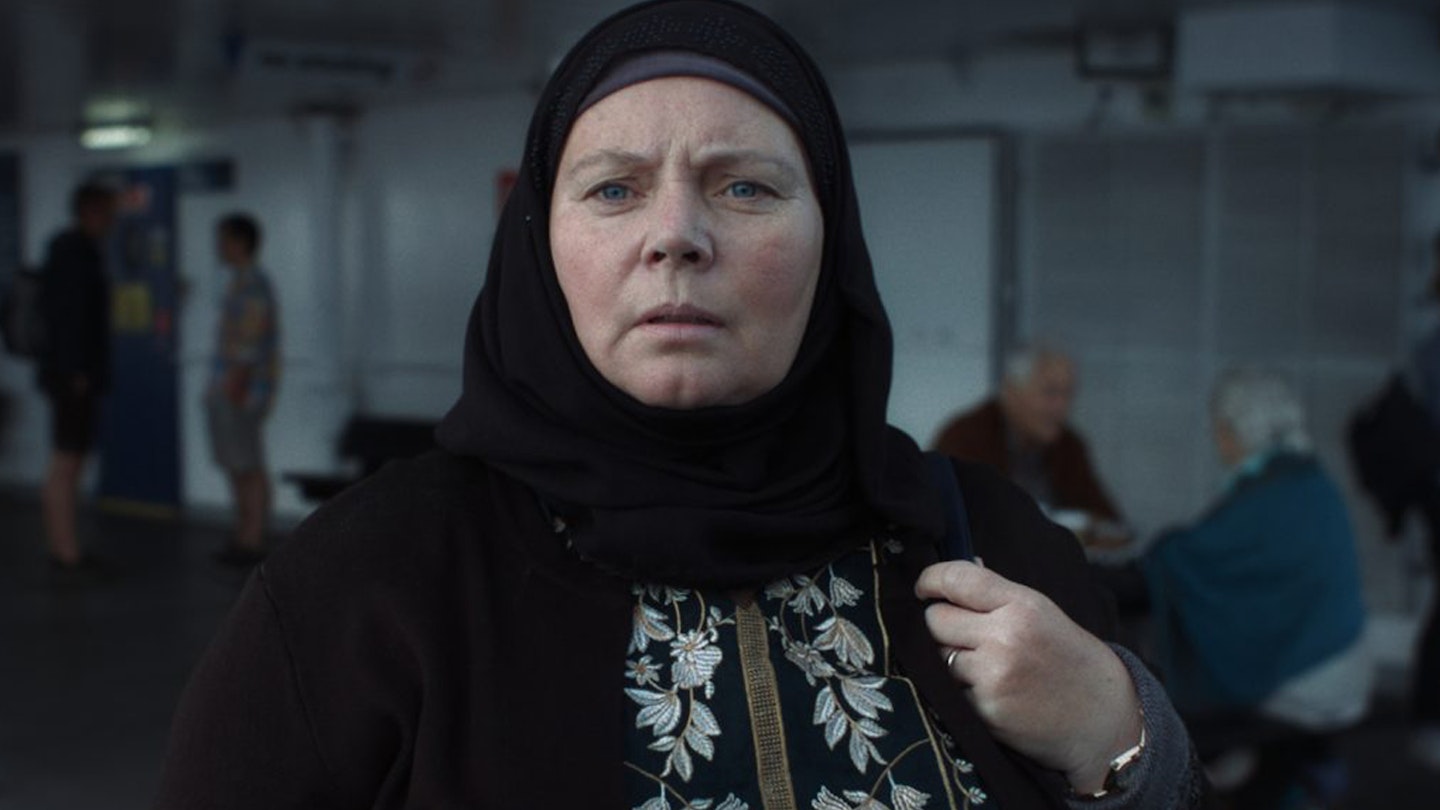In outline, After Love has all the hallmarks of a potential Channel 5 soap: mixed marriages, withholding secrets, shocking revelations and a death in the first five minutes. But in débutant writer-director Aleem Khan’s hands, it’s a sensitive — sometimes subtle, sometimes not — look into bereavement, private lives and cultural divides, all brought to life by a stunning performance by Joanna Scanlan working at the peak of her powers.
Scanlan is Mary/Fahima, a British Muslim convert, happily married to Ahmed (Nasser Memarzia). In a pre-credit sequence, Khan economically sketches a happy marriage in microcosm, Mary making a cup of tea, preparing dinner and gently smiling to herself as her husband fails to hit the high note of a Bollywood song. The domestic scene is shattered by Mary finding Ahmed dead in his armchair, the shock enhanced by the sound seeping out to silence. After the funeral, Mary goes through his belongings and discovers, via a French woman’s identification card and a string of texts from someone named ‘G’, her husband led a secret life. Rather than remain in the dark, she travels to Calais and finds herself at the door of her husband’s lover, Genevieve (Nathalie Richard).
A nuanced depiction of loss.
What happens next is typical of Khan’s unpredictable but restrained storytelling. Eschewing the obvious slanging match, Mary, by sheer dint of wearing a veil, is mistaken by Genevieve as her cleaner and, rather than ’fess up, the former starts working for her to feel closer to Ahmed and to get a sense of the woman with whom he shared his life. As much as it is a story about a deceived woman, Khan also plays with ideas of cultural assimilation in both quiet (none of Mary’s own family are present at Ahmed’s funeral to support her) and more arresting ways: a stunning image of Mary in her Muslim attire atop the collapsing white cliffs of Dover (a monument to British values), the crumbling chalk face mirroring her eroding sense of self, perfectly captures the sense of being caught between two worlds.
Scanlan, who has done outstanding work on television (Getting On, No Offence) but never really had the chance to shine on the big screen, perfectly plays a woman whose unfathomable loss is now compounded by the revelation that many of the years she spent with her husband were a sham. She shares strong scenes with Richard, trying to draw out information about Genevieve and Ahmed’s life together, but is perhaps best when she is left alone to etch Mary’s pain. From practising her introductions to Genevieve in the mirror to falling into the sea and letting the waves crash over her, from looking at herself naked in the mirror, tracing her flab and stretch marks with her finger to collapsing in grief on the floor in her nothing-y hotel room, it’s a nuanced depiction of loss that is at once difficult to watch yet impossible to look away from.
